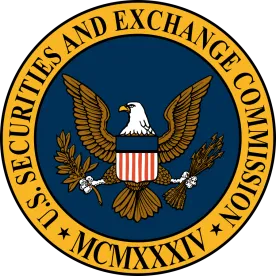Introduction
On 24 November 2020, the Securities and Exchange Commission (SEC) proposed rules that would significantly modernize and simplify the ability of companies to grant equity compensation to their workers under Rule 701 of the Securities Act of 1933 (Rule 701) and on the Form S-8 Registration Statement (Form S-8). The SEC noted that the proposed rules were appropriate “in light of the significant evolution in compensatory offerings” since the SEC last substantively amended the existing rules. This client alert summarizes the key aspects of these proposed rules.
The proposed rules summarized here were issued in tandem with a second set of proposed rules, issued by the SEC on the same date, that would meaningfully expand the ability of companies involved in the “gig economy” to grant equity compensation to their workers under Rule 701 and the Form S-8. Our client alert summarizing those proposed rules may be found here.
Background
By way of background, for companies that are not required to file reports under the Securities Exchange Act of 1934 (i.e., “private” companies), Rule 701 provides a broad exemption from registration for equity compensation granted to employees, consultants, and certain other service providers. For companies required to file such reports (i.e., “public” companies), equity compensation granted to employees, consultants, and certain other service providers may be registered on the Form S-8, a simplified registration form.
Rule 701 is the most prevalent exemption from registration used by private companies for equity compensation granted to their employees and consultants. Similarly, the Form S-8 is the most common registration statement used by public companies for equity compensation granted to their employees and consultants.
Rule 701(e) Proposed Rules
Rule 701(e) currently imposes certain disclosure requirements if the aggregate amount of equity compensation granted by a company during any consecutive 12-month period exceeds US$10 million. For companies that exceed this threshold, the required disclosure includes: (1) a copy of the summary plan description required by the Employee Retirement Income Security Act of 1974 (ERISA) or a summary of the plan’s material terms if it is not subject to ERISA; (2) risk disclosures; and (3) financial statements. Such financial statements must be as of a date no more than 180 days before the “sale” of equity compensation relying on Rule 701.1 Moreover, Rule 701(e) requires that the associated disclosures be delivered to all equity compensation recipients during the relevant 12-month period if the US$10 million threshold is surpassed—and not only for the equity compensation that exceeded the US$10 million threshold. For foreign private issuers (FPIs), Rule 701(e) requires that financial statements not prepared in accordance with generally accepted accounting principles in the United States (U.S. GAAP), or International Financial Reporting Standards as issued by the International Accounting Standards Board (IFRS), be reconciled to U.S. GAAP.
The proposed rules would:
- Require disclosure to only those recipients receiving equity compensation in excess of the US$10 million threshold (as noted above, currently, disclosure must be provided to all equity compensation recipients to whom awards are granted during any consecutive 12-month period in which the $10 million threshold is exceeded);
- Increase the maximum permissible age of the financial statements required to be disclosed from 180 days to 270 days;
- Permit FPIs that are eligible for the exemption from registration provided by Rule 12g3-2(b) under the Securities Exchange Act of 1934 (Rule 12g3-2(b)) to provide financial statements prepared in accordance with home country accounting standards if financial statements prepared in accordance with U.S. GAAP or IFRS are not otherwise available;
- Permit companies, other than Rule 12g3-2(b)-eligible FPIs, to provide, in lieu of financial statements, an independent valuation report (consistent with the requirements of Section 409A of the Internal Revenue Code), provided that the report is updated at six-month intervals;
- For restricted stock units and similar equity compensation that converts to shares automatically without any investment decision by the recipient, require that the disclosure be provided a reasonable time before the date of grant (if the grant is made in connection with a new-hire, the disclosure must be provided within 14 calendar days after the new-hire commences services with the company); and
- Clarify disclosure delivery obligations for options and restricted stock units granted by a target company that a buyer company assumes in a business combination transaction. Specifically, the proposed rules provide that the exercise or conversion of target company options and restricted stock units assumed by a buyer company would generally be exempt from registration under Rule 701 if the buyer company complies with Rule 701(e), where applicable.
Rule 701(d) Proposed Rules
Rule 701(d) currently provides that for a non-reporting company to be eligible to rely on Rule 701, total grants of equity compensation over a consecutive 12-month period generally may not exceed the greatest of the following three alternatives:
- US$1,000,000 (Dollar Cap);
- 15 percent of the company’s total assets (Asset Cap); or
- 15 percent of the outstanding amount of securities of the class covered by the equity compensation.
The proposed rules would:
- Increase the Dollar Cap to US$2,000,000;
- Increase the Asset Cap to 25 percent of a company’s total assets;
- Provide that in a business combination transaction, for purposes of the Asset Cap, the buyer company may use a pro forma balance sheet that reflects the transaction or a balance sheet for a date after the completion of the transaction that reflects the total assets and outstanding securities of the combined entity; and
- Provide that in determining the amount of equity compensation that a buyer company may offer following a business combination transaction, the buyer company is not required to count equity compensation for which the target company claimed the Rule 701 exemption during the same 12-month period.
Rule 701(c) Proposed Rules
Currently, Rule 701(c) provides that consultants and advisors may participate in Rule 701 offerings only if, among other requirements, they are natural persons. The proposed rules would expand consultant or advisor eligibility to an entity, subject to the following conditions:
- Substantially all of the activities of the entity must involve the performance of services; and
- Substantially all of the ownership interests in the entity must be directly held by:
- No more than 25 natural persons, of whom at least 50 percent perform services for the company through the entity;
- The estate of a natural person specified above; and
- Any natural person who acquired ownership interests in the entity by reason of the death of a natural person specified above.
Rule 701(c) also currently exempts equity compensation granted to former employees and consultants, generally only if such persons were employed by or providing services to the company at the time the equity compensation is granted. The proposed rules would expand the eligibility of former employees to include:
- Persons who were employed by or providing services to the company and who are granted equity compensation after termination of employment or service as compensation for services rendered during a performance period that ended within 12 months preceding such termination; and
- Former employees of a target company acquired by a buyer company if the equity compensation is issued in substitution or exchange for equity compensation issued to the former employees while employed by or providing services to the target company.
Finally, Rule 701(c) currently limits the Rule 701 exemption to equity compensation grants to service providers of a company’s majority-owned subsidiaries. The proposed rules would expand the availability of the exemption to any company subsidiary.
Form S-8 Proposed Rules
The proposed rules clarify that companies may add additional plans to existing Forms S-8 under certain circumstances. For example, assume that a company with an effective Form S-8 covering a 2010 equity compensation plan adopts a new 2020 equity compensation plan; upon effectiveness of the new plan, no further awards could be granted under the old plan; and any shares covered by an award under the old plan are now duly authorized for issuance under the 2020 plan. In order to grant equity compensation under the new plan, the company may register the new plan shares on a new Form S-8. Alternatively, the company could file an automatically effective post-effective amendment to the previously filed Form S-8 to add the new plan. The SEC noted that from time-to-time companies may find that they need to add additional securities to the Form S-8 as well. Accordingly, the proposed rules would permit companies to add securities to an existing Form S-8 by filing an automatically effective post-effective amendment.
In addition, the proposed rules clarify that companies are not required to allocate registered securities among incentive plans and may use a single Form S-8 for multiple incentive plans. The Form S-8 would not need to assign or allocate the covered securities to particular incentive plans. In this way, the Form S-8 may be used to create a pool of registered shares that may be issued under the company’s various incentive plans.
Proposed Rules Conforming Form S-8 to Rule 701
As discussed above, the proposed rules would expand Rule 701 eligibility for former employees to specified post-termination grants and to former employees of target companies acquired in a business combination transaction. The proposed rules would make similar changes to the eligibility rules under the Form S-8.
Also as discussed above, the proposed rules would amend Rule 701 to expand eligibility to certain consultants and advisors that have chosen to organize their business as an entity. The proposed rules would make similar changes to the eligibility rules under the Form S-8.
The proposed rules are subject to a 60-day public comment period following their publication in the Federal Register.
Conclusion
In broad terms, the proposed rules would likely increase the amount of equity compensation companies may provide pursuant to the Rule 701 exemption and Form S-8; expand the scope of eligible consultants, advisors, and employees that may receive equity compensation under the Rule 701 exemption and Form S-8; and lower the compliance and disclosure costs for companies relying on, or seeking to rely on, the Rule 701 exemption or Form S-8.
1For grants of restricted stock, a “sale” occurs on the date of grant; for grants of options and restricted stock units, a “sale” occurs on the date of exercise or conversion, respectively.




 />i
/>i

